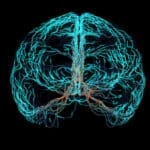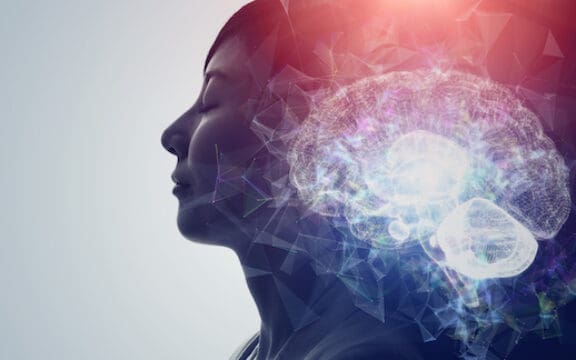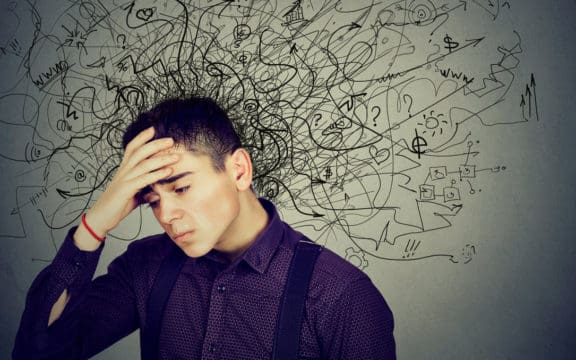Transcranial magnetic stimulation (rTMS) is a non-invasive brain stimulation technique which has demonstrated antidepressant properties via innovative mechanisms, without the side effects of antidepressant medications or ECT. In the interest of furthering scientific understanding of the results of TMS treatment for treatment-resistant major depression, Bouaziz et al. conducted a retrospective study of French clinic records, publishing their results in early 2023. An examination of this recent study helps illustrate the usefulness of the treatment as well as provide suggestions for improving its effectiveness.
Methodology of This Study of TMS for Major Depression
Bouaziz and colleagues retrospectively analyzed the records of 435 treatment-resistant depression patients treated at five clinics located in France who were treated between January 2015 and December 2020. Patients had been assessed with a questionnaire prior to treatment to establish a baseline, as well as immediately after completing a course of TMS. The researchers used univariate analysis to find the significant treatment-impacting factors that they combined with patient age and gender to create a multivariate model. The sample was more female than male and had an average age of about 51 years. Over a quarter of the patients in the sample had a diagnosis of bipolar depression.
The Study’s Results and Conclusions About the Effectiveness of TMS for Major Depression
The Bouaziz et al. study found that, “The mean improvement of depressive symptoms was 33 % (p < 0.001, effect-size: 0.79).” The response rate in the study was 31% and the remission rate was 22.8%. Additionally, the analysis using the multivariate model found an association between “higher baseline symptoms” and the extent of the “improvement in depressive symptoms.”
The authors of the study concluded that TMS is effective for the treatment of medication-resistant depression. Specifically, they stated that, “TMS is an effective therapy, which should be more widely available to depressed patients, regardless of the polarity of the depression, including patients suffering from severe or moderate depression who have comorbidities as well as a high resistance to antidepressant drugs.” The authors also suggested that “analyzing predictors of response, as well as personalized targeting of specific brain areas” could improve the effectiveness of TMS for major depression.
The Importance of This Study
Bouaziz et al. indicated their belief that their study is the largest to evaluate TMS in a naturalistic setting. In other words, rather than studying research subjects’ responses to TMS in a controlled, laboratory environment, they analyzed the results of TMS taking place in a naturalistic treatment setting. While both study designs are valuable, this naturalistic approach adds to the body of research in a significant way by providing information about how actual patients respond under more usual, “real world” conditions.
Additionally, the authors’ recommendations for potential improvements to treatment methodology may assist practitioners to provide the best possible care to their patients in the future. Further research can build on this study to enhance our understanding of why certain factors impede or enhance the effectiveness of TMS, as well as how to better personalize the treatment for each patient.
How Patients Can Learn More
When it comes to research studies such as this one, patients’ primary concern is whether they should try TMS for major depression or other mental health conditions. The Bouaziz et al. study concludes that TMS is usually effective for major depression, including when symptoms are moderate-to-severe, medication-resistant, and for depression with comorbidities.
Before deciding to seek TMS treatment, however, many patients will want to know as much as possible about it. An initial question might be, “How does TMS work?” and an explanation of the procedure by a practitioner may help. These frequently asked questions provide additional general information about TMS, while additional discussions of TMS research can provide further scientific evidence to help you make a decision about whether to seek out the procedure. Ultimately, the decision of what treatment will be the best fit for an individual patient will be determined in consultation with a mental health professional, but gathering as much information as possible ahead of time can facilitate the discussion.
Mid City TMS’ Patients Can Benefit from TMS for Major Depression
Mid City TMS provides effective and safe TMS treatment in Manhattan. Mid City TMS’ Medical Director, Dr. Bryan Bruno, has been a practicing psychiatrist since 1995, and continually updates his understanding of the state of research in the field. He provides counseling and medication management in addition to TMS, enabling him to provide comprehensive treatment options, determining the best approach for each individual patient. Contact Mid City TMS today to get started on your journey to feeling better.

















